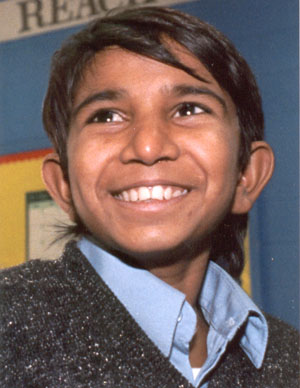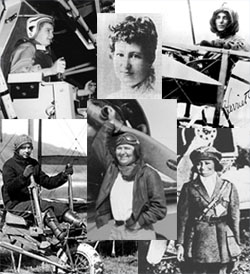This is the third issue of Voices From the Past. My goal for each issue is to publish some highlights of one of my historical stories as well as an update on my activities. Please feel free to forward this e-newsletter to anyone you think might be interested.
Iqbal Masih: Human Rights Worker
I found it difficult deciding which parts of this story to share with you. So here is my entire story. This story won a 2010 Storytelling World Honor Award in the category 'Stories for Pre-Adolescent Listeners.' This story was also part of the online 2012 JustStories Festival.
 Some people say “Children can not make a REAL difference in the world.” I am going to tell you about one child who DID make a real difference.
Some people say “Children can not make a REAL difference in the world.” I am going to tell you about one child who DID make a real difference.
His name was Iqbal Masih. Between the ages of 10-12, he led thousands of children to freedom. He spoke in front of large meetings of children. He told them his story. He urged them, “Come with me and be free.” Thousands of them followed him to freedom.
Iqbal’s story was very much like their own stories. Iqbal was born to a poor family in Pakistan, his father a laborer, his mother a housecleaner. When Iqbal was 2, his father deserted the family. Later, when Iqbal’s older brother was getting married, his father knew he must still pay for part of the festivities. But he did not have the money, and as a poor laborer, he could not get a loan from a bank. So he borrowed 600 rupees ($12) from the owner of the nearby carpet factory. Iqbal was the collateral for the loan and would work until the debt was paid.
Iqbal was only four years old. The year was 1987– yes, this is a modern tale.
Iqbal worked in an airless room with 20 looms and a small, bare light bulb. All windows were sealed to keep out insects that might damage the wool.
Later Iqbal told people, “I started working when I was four. I used to leave my home at four in the morning and come back at seven at night.” That happened 6 days a week. He only had energy to play on his one day off. He was often chained to his loom. He was fed a meager lunch, which he had to pay for. Sometimes he would sneak away, but he would get beaten on his return.
Children were not allowed to speak to each other. Iqbal later told his listeners: “The factory owner told us if the children spoke, they were not giving their complete attention to the product and were liable to make errors.”
During one of the times Iqbal snuck away from the factory, he went to the police station to report the threats, beatings and other terrible conditions. The policeman returned Iqbal to the factory where he was given a severe beating and told: “You are a working boy, a carpet weaver; you will remain a carpet weaver for the rest of your life.” There was no escape, no end to the work.
Members of Iqbal’s family kept borrowing from the carpet factory owner. The original 600 rupee debt ($12) grew to 13,000 rupees ($260) -- too much to ever be paid off.
Wonderful things started happening in 1993, the year Iqbal turned 10.
Pakistan’s parliament passed a bill which abolished bonded labor contract AND canceled all debts owed because of bonded labor. All the bonded laborers had to do was present a “freedom letter” to their factory owners, declaring the termination of their bonded labor contracts. Penalty for loaning money in return for bonded labor was now a minimum of 2 years in jail plus stiff fines.
Eshan Ullah Khan and other members of an organization called the Bonded Labor Liberation Front (BLLF) of Pakistan traveled from village to village, holding meetings and rallies, explaining the new law.
Iqbal’s carpet factory owner warned all his workers to stay away from the BLLF rally in their village. Iqbal thought if his owner said something was bad, that it must be good. “My owner threatened me, but that day I ran away from work.” For the first time Iqbal learned that the law canceled his family’s debt to the carpet factory owner.
Eshan Ullah Khan spotted Iqbal at that rally, and brought Iqbal up on stage, asking him to introduce himself, to give his name, age, carpet factory owner’s name, and the amount of his debt. Everyone was stunned that Iqbal was 10 – he looked 6, since his growth had been stunted from malnutrition and leaning over loom.
After the meeting, Iqbal refused to return to work until a BLLF lawyer wrote a freedom letter for him. Iqbal insisted on delivering that letter in person because he wanted to tell the other boys, “Come with me and be free.” The factory owner was furious but could do nothing.
Iqbal started attending school for the first time, a Bonded Labor Liberation Front school, and traveled to meetings with Eshan Ullah Khan, urging children to “Come with me and be free.”
Iqbal became the first recipient of Reebok’s Youth in Action Human Rights award. (Their regular award was for those under 30, but since Iqbal was so young, they made a special category for him.) As part of the award, Iqbal visited to Boston for one week in Dec. 1994. While there, he visited the Broad Meadows Middle School where his translator became exhausted translating all of Iqbal’s talks and conversations. The students were even standing on chairs at lunch just to catch a better glimpse of Iqbal.
Later that week, during his acceptance speech for the Reebok award, Iqbal told his story. “In my country, children work with this instrument (holding up his carpet tool). Children need this instrument (holding up a pen).” He asked Pres. Clinton to put sanctions on counties using child labor.
Later when he was asked what he wanted to be when he grew up, Iqbal said: “A lawyer, fighting for the rights of my people. But first I have to finish school.”
Unfortunately, Iqbal never got to finish school.
Four months after receiving the Reebok award, while riding a bicycle with his cousin, Iqbal shot dead. There were many investigations into his death. His murderer is still unknown; perhaps it was a crazed villager tired of noisy children, or perhaps a member of the carpet mafia in Pakistan.
But, amazingly, this is NOT the end of Iqbal’s story.
-
In the two years after Iqbal’s death, the students at Broad Meadows Middle School raised money from 3,000 school and youth groups in all 50 states as well as 27 countries. They suggested a $12 gift, symbolic of Iqbal’s age at his death, and of the original debt. $127,000 was donated from kids, and $19,000 more from Reebok, unions, celebrities and other adults. With the total of $146,000, a school was built in Pakistan in Iqbal’s honor.
- In Canada, twelve year old Craig Kielburger read a newspaper article about Iqbal after Iqbal’s death. With friends, Craig started
Free the Children. In the 11 years since Iqbal’s death, this organization has built 400 schools, and raised $9 million for medical supplies.
- 2 ½ years after Iqbal’s death, Pres. Clinton signed a law making it illegal to import goods created by bonded child labor.
Some people say “Children can not make a REAL difference in the world.”
I guess those people have never heard of Iqbal Masih, the students at Broad Meadows Middle School, and Craig Kielburger.
What I’ve Been Doing
 I have started reading about the playwright and lyricist Oscar Hammerstein II. There are wonderful stories about his working on the Broadway shows "Show Boat," "Oklahoma," "South Pacific" and "The Sound of Music." I was surprised to find out that he was a mentor to Stephen Sondheim, starting when "Stevie" was 10. Stephen later said, "If Oscar had been a geologist, I would have been a geologist."
I have started reading about the playwright and lyricist Oscar Hammerstein II. There are wonderful stories about his working on the Broadway shows "Show Boat," "Oklahoma," "South Pacific" and "The Sound of Music." I was surprised to find out that he was a mentor to Stephen Sondheim, starting when "Stevie" was 10. Stephen later said, "If Oscar had been a geologist, I would have been a geologist."
Later this month, I'll be attending a tour at the New-York Historical Society on their exhibit "A New Light on Tiffany." This exhibit is about Clara Driscoll and other women who worked for Tiffany and designed many of the famous Tiffany lamps.
On Sunday, March 18, Nancy Marie Payne and I will be doing a program called “Up, Up, and Away! Stories of Pioneer Women Aviators.” This program is part of Story Sundays at the Glen Sanders Mansion, a storytelling dinner series for adults, now in its eighth season. 1 Glen Avenue, Scotia, NY. $26, including dinner.
Thanks for reading this issue. I’ll be sending you some more story highlights in a few month.
To sign up to get free copies of my future e-newsletters, please fill out this form.
Copyright 2007 by Kathryn Eike Dudding. All Rights Reserved.